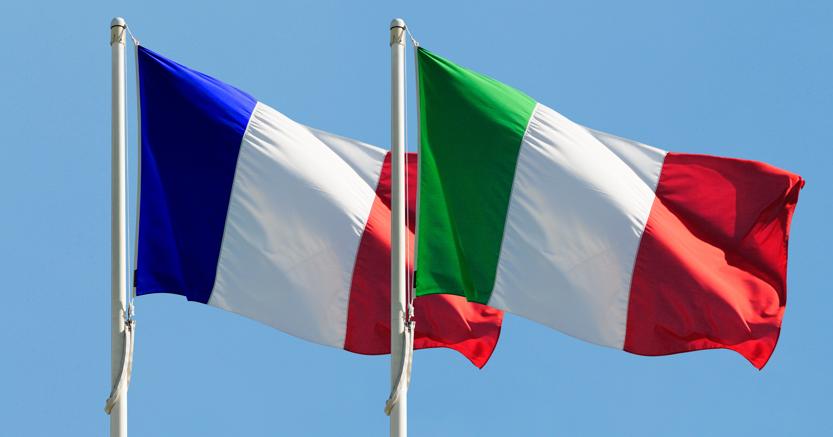In La Croix: “Leonardo da Vinci was neither Italian nor French, he was above all European”

On Thursday, May 2, 2019, the President of the Italian Republic, Sergio Mattarella, travelled to France to commemorate the 500th anniversary of Leonardo da Vinci’s death. On this occasion, Yves Bertoncini, President of the European Movement – France and Pier-Virgilio Dastoli, President of the European Movement – Italy, co-signed a platform to honour the Franco-Italian friendship, the cooperation of the two countries that has made it possible to develop the European construction and the cultural identity that we share as Europeans.
This Tribune was published in La Croix and is available in French and Italian. The English version is below :
Our stories are closely linked, culturally, economically, politically. Italy and France, two countries that – together with Robert Schuman and Jean Monnet, Alcide de Gasperi and Altiero Spinelli – are at the origin of the European integration process, have contributed to transforming a large part of Europe from a continent at war to a continent at peace, living in shared prosperity. As founding countries, we have a common responsibility at a time when the European Union is at a crossroads and must face nationalists who want to disintegrate it, question the rule of law and the principles of solidarity and unity that cement its construction.
The Franco-Italian agreement is essential for the continuation of the European project, which means listening to each other in order to better understand each other and to consider together the next steps in the European construction process, making it possible to regain shared sovereignty in a globalised world.
Several subjects require this agreement to drive common European policies, starting with migration management. The time has now come for all EU countries to assume their duty of solidarity and no longer let the “gateway” countries manage these flows alone. Defining a common European asylum and immigration policy is an urgent requirement for European countries because it is the only way to propose comprehensive and sustainable solutions to migratory flows, based on the sharing of responsibilities, the reception and respect for the dignity of people fleeing conflicts, persecution or disasters, and strengthened and renewed cooperation with the African continent.
Solidarity between Member States must also be in place in industrial, technological or research matters to ensure European sovereignty in the face of Asian, Russian or American competitors and to respect the objectives of sustainable development and the Paris agreements. The Atlantic Shipyards episode must not happen again and France and Italy must work together for European industry and to allow the creation of “European champions”. That is why they must also support an increase in the EU’s annual budget with a five-year projection, based on an autonomous capacity for spending and tax collection without increasing the tax burden on European citizens. Because an increased budget is needed to finance European public goods and investments in research and innovation that will enable Europe to continue to play an active role at international level.
This world that needs to be appeased needs a strong and united Europe. Faced with the chaotic situations in Libya and the Sahel, Italy and France must act together rather than separately. The EU’s external security can only be ensured by a single voice and a genuine common foreign policy, including the defence dimension, in all international fora.
Italy and France, members of the euro zone, are at the heart of the EU. To preserve it is to preserve their capacity for action and their prosperity in a globalised world. Ensuring this prosperity means acting together to provide EMU with a genuine political and economic government and an appropriate budget, to overcome the contradictions between supranational monetary policy and broadly national economic and social policies, to reduce inequalities and to restore work to its central position.
The European elections represent a major challenge in this context. Will the citizens of France and Italy be able to set an example by voting for candidates who are committed to the essential stages of European integration? Will the elected representatives be able to open a new phase of integration following the example of the first Parliament elected in 1979 and proposing a project for reforming the EU? Why not imagine holding another “interparliamentary conference on the future of Europe” in May 2020 – seventy years after the Schuman Declaration – as proposed by François Mitterrand in October 1989 on the eve of the fall of the Berlin Wall?
In 1516, when Francis I gave the Château du Clos Lucé to Leonard de Vinci, he said to him: “Here Leonardo, you will be free to dream, to think and to work”. It is the duty of France and Italy to ensure that the EU is a place where every European citizen is free to dream, think and work!